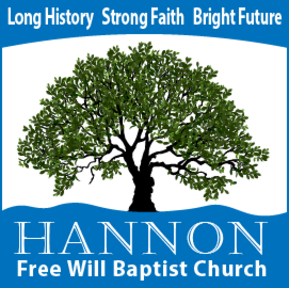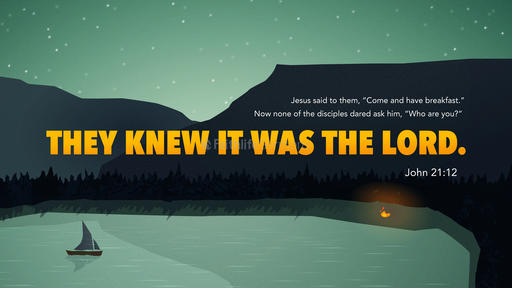Matthew 21:12
Notes
Transcript
Then Jesus went into the temple of God and drove out all those who bought and sold in the temple, and overturned the tables of the money changers and the seats of those who sold doves. And He said to them, “It is written, ‘My house shall be called a house of prayer,’ but you have made it a ‘den of thieves.’ ”
Then the blind and the lame came to Him in the temple, and He healed them. But when the chief priests and scribes saw the wonderful things that He did, and the children crying out in the temple and saying, “Hosanna to the Son of David!” they were indignant and said to Him, “Do You hear what these are saying?”
And Jesus said to them, “Yes. Have you never read,
‘Out of the mouth of babes and nursing infants
You have perfected praise’?”
Then He left them and went out of the city to Bethany, and He lodged there.
Mattew 21:12
21:13. The Messiah-King spoke to his subjects, who were misusing this place of worship. Not only was it written, but he himself had written, “My house will be called a house of prayer” (Isa. 56:7). The broader context of Isaiah 56:3–8 was especially significant in view of the temple cleansing. The Lord was reassuring both eunuchs (who were, by Mosaic Law, not permitted into the temple, Lev. 21:20) and Gentiles that, when all was set right, they would be gathered into the community of worship together with the faithful of Israel. In fact, the full quotation from Isaiah 56:7 is: “My house will be called a house of prayer for all nations” (emphasis mine). This emphasized the inclusion of Gentiles. Matthew shortened the quotation to draw attention to the contrast between the purpose of the temple for prayer and its use as a market.
Weber, S. K. (2000). Matthew (Vol. 1, p. 340). Broadman & Holman Publishers.
According to Mark, it happened on the second day of this final week; on the first day Jesus merely went into the Temple and looked around before returning to Bethany to spend the night (11:11). Matthew and (Luke 19:45) date it on the first day of Jesus’ entry into Jerusalem, immediately following the triumphant entry
Newman, B. M., & Stine, P. C. (1992). A handbook on the Gospel of Matthew (p. 644). United Bible Societies.
21:15 The children in the temple continue to sing and shout the words that were used during Jesus’ entry into Jerusalem (21:9
Mangum, D., ed. (2020). Lexham Context Commentary: New Testament (Mt 21:14–17). Lexham Press.
The phrase “den of robbers” comes from Jeremiah 7:11 and is part of a long sermon that Jeremiah delivered in the gate of the temple, rebuking the people for the same sins that Jesus saw and judged in His day.
Wiersbe, W. W. (1996). The Bible exposition commentary (Vol. 1, p. 77). Victor Books.
Christ rebuked the Pharisees and doctors of the law because of the dishonest practices which they had brought into the temple courts. These men influenced the buyers and sellers to purchase cattle at the lowest prices, and then to sell them for a high price to those coming from a distance, who could not bring their offerings with them and were therefore compelled to buy them in Jerusalem. As these men sat at the table, counting the money they had gained by robbery and extortion, Christ stood before them. His eye flashed with indignation as He saw the fraudulent transactions which were carried on. Picking up a scourge of small cords which had been used to drive cattle to the temple, He drove out those who sold and bought, and overthrew the tables of the money changers and the seats of them that sold doves, saying, “It is written, My house shall be called the house of prayer; but ye have made it a den of thieves.”
White, E. G. (1932). Medical Ministry (pp. 122–123). Pacific Press Publishing Association.
When Jesus began His public ministry, He cleansed the Temple from its sacrilegious profanation. Among the last acts of His ministry was the second cleansing of the Temple. So in the last work for the warning of the world, two distinct calls are made to the churches. The second angel’s message is, “Babylon is fallen, is fallen, that great city, because she made all nations drink of the wine of the wrath of her fornication” (Revelation 14:8). And in the loud cry of the third angel’s message a voice is heard from heaven saying, “Come out of her, my people, that ye be not partakers of her sins, and that ye receive not of her plagues. For her sins have reached unto heaven, and God hath remembered her iniquities” (Revelation 18:4, 5).—The Review and Herald, December 6, 1892
White, E. G. (1958). Selected Messages From the Writings of Ellen G. White, Book 2 (p. 118). Review and Herald Publishing Association.
Jesus finds persons ‘selling [the verb pōleō] and buying [the verb agorazō] in the temple’ (Matt. 21:12a). The scene is the court of the Gentiles, an enclosure of some thirty-five acres which surrounded, and was separated from, the precincts of the temple open to Jews—the court of the women, the court of Israel (of the men) and the court of the priests.
Chamblin, J. K. (2010). Matthew: A Mentor Commentary (p. 1008). Mentor.
Matthew 21:12 speaks also of ‘money changers’ (kollybistai). In the Palestine of Jesus’ day the main currency was Roman; but all payments to the temple, notably the annual tax (17:24), had to use Greek coinage (from Antioch or Tyre), which provided the closest equivalent to the old Hebrew shekel. As with the merchandising, money changing at Passover offered exceptional opportunity for financial gain both lawful and illicit.10
Chamblin, J. K. (2010). Matthew: A Mentor Commentary (p. 1009). Mentor.
ADVERTISEMENT
Related Media
See moreRelated Sermons
See more

Randy Johovich • 12 views


goh tp • 3 views


Hannon FWB Church • 4 views • 49:01



